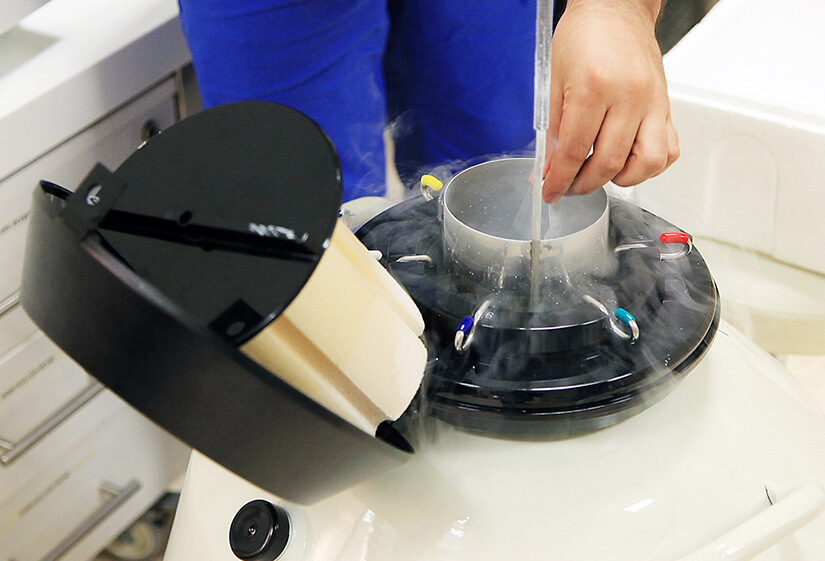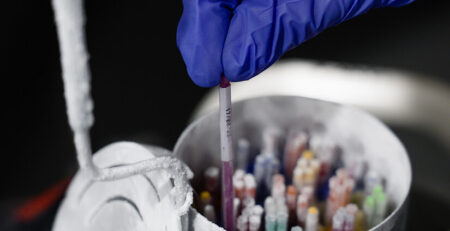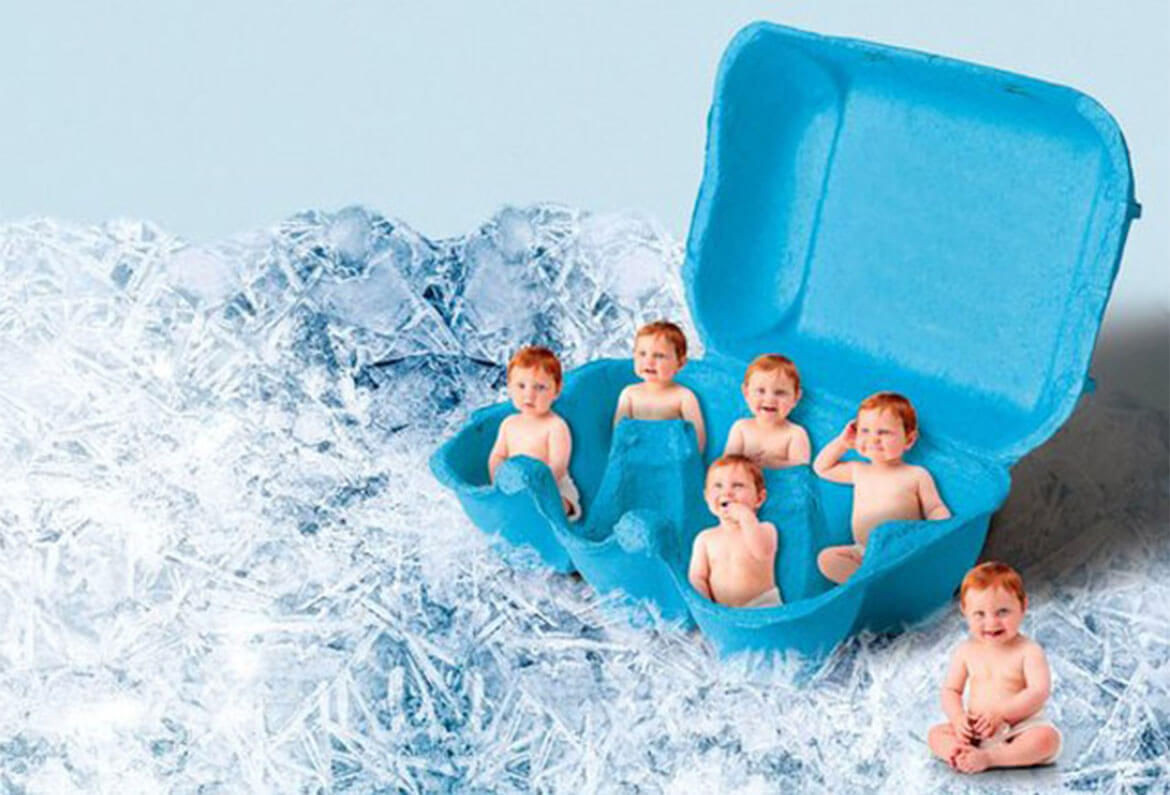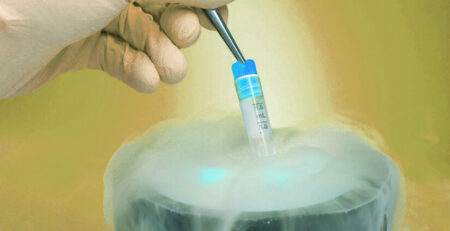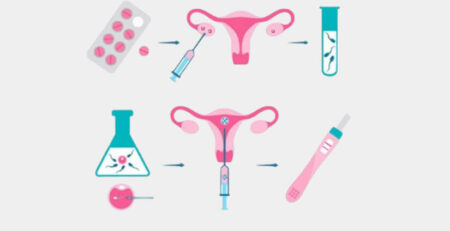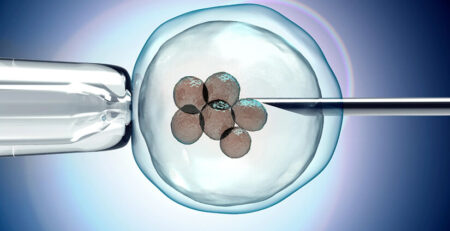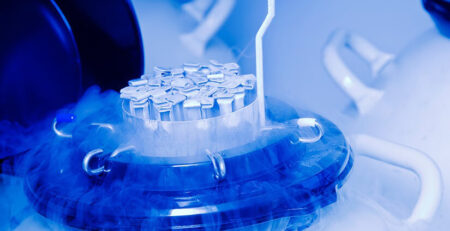What Is The Process of Egg Freezing?
Nowadays, more and more women are choosing egg-freezing treatments to delay pregnancy for various reasons, such as pursuing a career, finding a partner, or addressing health concerns.
Yes, that is true! You can use egg freezing to manage other aspects of your life until you are ready to conceive.
However, many people are not fully aware of what the egg-freezing process includes. If you are one of those women looking to delay your pregnancy or are a partner to one, this comprehensive guide will pave your path for a thorough understanding of the procedure and its benefits.
Stay tuned to the end as we discuss egg freezing, its procedure, the associated cost, the utilization of frozen eggs, and who should consider it in detail.
What is Egg Freezing?
Egg freezing, also known as oocyte cryopreservation, is a type of assisted reproductive technology (ART) for preserving a woman’s eggs for future use. In simple words, egg freezing treatment is a medical procedure in which your eggs are harvested through an IVF procedure and frozen. When you are ready to have a child, the frozen eggs can be thawed, fertilized with sperm, and implanted in your uterus.
Whether you choose egg freezing to delay pregnancy, to preserve fertility before cancer treatment, or to donate eggs to others, the purpose of egg freezing is the same: to store eggs at a younger age, when they are of higher quality, so that they can be used to conceive later in life.

What is the Process of Egg Freezing?
Now that you have a clear understanding of egg freezing let’s move to the main point: its procedure.
The egg-freezing process includes a few steps.
Step 1: Preparation
The initial step of any procedure is preparation. First of all, you will meet your fertility doctor at the IVF centre in Delhi and discuss your goals and expectations. During this consultation, you should ask the questions to your doctor like how many eggs can be frozen and clear all your doubts.
Your doctor will perform a physical exam, blood tests, hormone tests, and an ultrasound to determine whether you are an ideal candidate for egg freezing. After the medical examination, your doctor will create a stimulation plan to help you produce as many eggs as possible without putting you at any risk, such as ovarian hyperstimulation syndrome (OHSS).
Your doctor will also give you some instructions on how to take the medications needed to stimulate your ovaries and prepare for egg retrieval. This is most important to follow, you would agree.
Step 2: Ovarian Stimulation
Depending on the current menstrual cycle, your doctor at the IVF centre in Delhi will recommend taking hormonal injections from usually day 2 or day 3 of your cycle to stimulate your ovaries to produce more eggs. You need to take these injections for around 10-12 consecutive days to achieve the desired number of eggs.
During these days, you will be monitored by your doctor to assess the progress of your follicles. Once the follicles reach a good size, you will receive a trigger shot to induce maturation of the oocyte or egg.
Step 3: Egg Reterival
The next step is egg retrieval. It is a minor surgical procedure that is performed on an outpatient basis. Your specialist at the IVF centre in Delhi will put you under anesthesia so that you don’t feel any pain or discomfort during the procedure.
After putting you under anesthesia, your doctor will insert a transvaginal ultrasound probe with a needle into your vagina. The whole procedure is guided by ultrasound imaging. Your doctor will rupture the follicle and aspirate the fluid inside the egg. Your doctor will collect the fluid inside a tube and give this tube to an embryologist to identify the eggs.
The entire egg retrieval procedure takes about 10-20 minutes. Once you wake up, your doctor will tell you how many eggs were retrieved.
The number of eggs retrieved depends on several factors, including age and ovarian reserve. In general, people who are 40 and older tend to have fewer eggs retrieved than people who are younger than 35.
After the procedure, you may experience mild cramping, bloating, constipation, and vaginal spotting for the first 24 hours. This is usually mild and goes away within a few days. Your doctor may prescribe common pain relieving medicines and antibiotics to relieve these symptoms.
However, if you experience more severe abdominal pain, feel faint or lightheaded, or have heavy vaginal bleeding, you should visit your IVF centre in Delhi immediately.
Step 4: Egg Freezing
Within a few hours of egg retrieval, eggs that were successfully collected will be vitrified. This process is very fast, and the eggs are cooled to very low temperatures very quickly. This helps to prevent ice crystals from forming, which can damage the eggs.

Risks and Side Effects of Egg Freezing
While the egg-freezing treatment is completely safe, some patients may experience mild discomfort. Major risks are rare, and one such risk is ovarian hyperstimulation syndrome (OHSS).
OHSS can occur when drugs intended to stimulate the ovaries to produce eggs generate extremely high hormone levels, which can induce ovarian enlargement, fluid leakage into the belly, and electrolyte imbalances.
Just like the hormone changes during your menstrual cycle can affect your mood, the stimulation medications used in egg freezing can do the same. Additionally, egg freezing can be a stressful process, which can cause mood swings caused by the hormones.
You may also experience skin irritation at the injection site and ovarian torsion, a rare but painful condition in which the enlarged ovary twists on itself.

Who Might Consider Egg Freezing?
Fertility declines with age. This is because the number and quality of a woman’s eggs decrease with age. As a result, egg freezing treatment is most successful in younger women.
- Women who postpone having children for personal or professional reasons. Women who are focused on their education or job, women who are not yet in a permanent relationship, or women who just wish to have more alternatives in the future may fall into this category.
- Women who have a medical condition or need treatment for a medical condition that will affect their fertility. This may include women with cancer, women with endometriosis, or women with other fertility disorders like PCOS.
- Women who are considering gender transition. Gender transition can involve hormone therapy and surgery, which can affect fertility. Egg freezing can be an option for women who want to preserve their fertility before starting gender transition.
How to Prepare for the Egg Freezing Process?
Egg freezing treatment is a simple procedure.
On the day of your egg retrieval procedure, bring a trusted friend or family member with you for support. Wear comfortable clothes and plan to relax afterward. It is normal to need a few days to recover from the discomfort associated with the procedure.
Set realistic expectations. Life will be a little different during the egg-freezing process. Eat a healthy diet and minimize your caffeine and alcohol intake. Follow your doctor’s instructions, especially those advising you to avoid strenuous activities such as high-impact exercise and sex.
It is normal to feel more stressed or have mood swings due to the hormones you are taking. Be kind to yourself and take time to relax.
Cost of Egg Freezing
The cost of egg freezing varies depending on the clinic and your location. The freezing process is priced by cycles, which include consultations, injections, ultrasounds, and the egg retrieval procedure. Generally, the cost of the egg retrieval procedure ranges from 1.25 to 1.5 lakhs.
Some of the clinics offer payment plans for the procedure. Therefore, choose the clinic that offers such programs.

Utilization of Frozen Eggs
Once you are ready to start a family, you can either try to conceive naturally or use your frozen eggs. If you choose to use your frozen eggs, semen from your partner will be used to fertilize them in a lab. The embryologist will then select and fuse the sperm with the warmed eggs to create embryos. The highest quality embryos will then be selected for embryo transfer into your body during the embryo transfer process.
Egg freezing has a high success rate, around 55-60%, using a highly effective technique called vitrification. With vitrification, 80-90% of frozen eggs survive the freezing and thawing process.
Take away!
Egg freezing is a viable option for women who want to delay having children or preserve their fertility for other reasons. It is a relatively safe procedure with a good success rate. However, it is important to be aware of the risks, side effects, and costs before deciding to freeze your eggs.
If you are considering egg-freezing treatment, talk to Dr. Rhythm Gupta, a fertility specialist in Delhi, to learn more about the process and discuss your individual needs.

